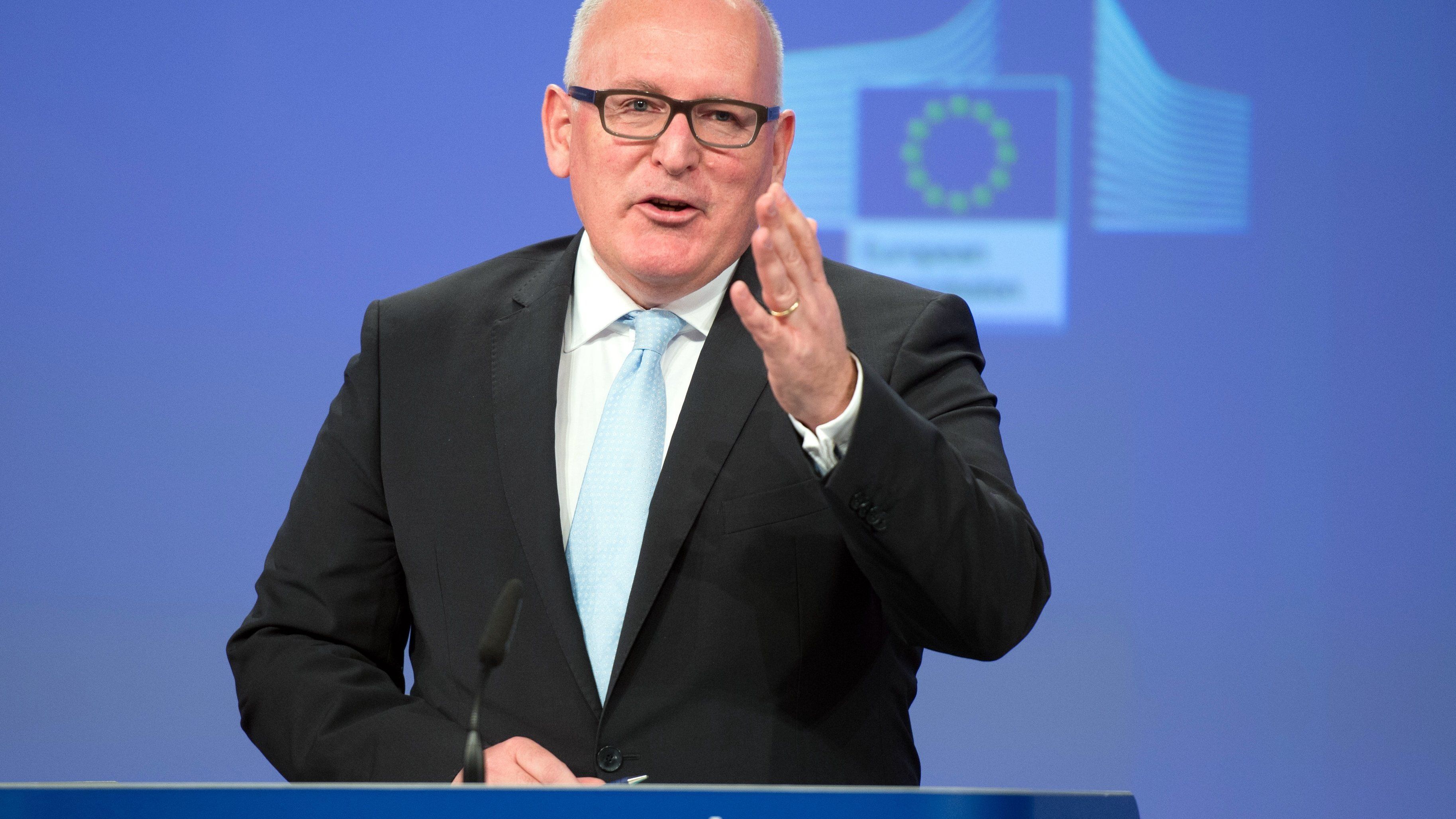Komisja Europejska skarży Polskę do TSUE. Wyrzuceni sędziowie mają wrócić do Sądu Najwyższego
Tylko o tydzień udało się Mateuszowi Morawieckiemu opóźnić złożenie przez KE skargi na ustawę PiS o Sądzie Najwyższym. Komisja chce również zastosowania środka tymczasowego - zamrożenia zarówno zwolnień sędziów z SN jak i nominowania nowych sędziów. A więc powrotu do stanu w SN sprzed 3 kwietnia 2018 roku, czyli dnia wejścia ustawy w życie
Powiedz nam, co myślisz o OKO.press! Weź udział w krótkiej, anonimowej ankiecie.
Przejdź do ankietySkarga Komisji Europejskiej miała zostać ogłoszona już w środę 19 września. Decyzję odłożono prawdopodobnie ze względu na pojednawcze gesty ze strony premiera Mateusza Morawieckiego, który tego samego dnia spotkał się z I prezes SN Małgorzatą Gersdorf i przedstawił jej propozycje ustępstw ze strony PiS.
Mateusz Morawiecki swoimi działaniami kupił rządowi kilka dni - w tym czasie Andrzej Duda powołał 10 sędziów do nowopowstałej Izby Dyscyplinarnej SN.
W piątek Małgorzata Gersdorf opublikowała oświadczenie, w którym przedstawiła warunki "minimalne i brzegowe" do podjęcia dialogu z rządem. Było to przywrócenie wszystkich sędziów, których PiS odesłał na emeryturę na podstawie swojej ustawy (w tym również I Prezes) oraz ponowny wybór Krajowej rady Sądownictwa zgodnie z konstytucją. Jednocześnie Agencja Reuters podała informację, że KE złoży w skargę w poniedziałek 24 września.
Tak też się stało.
Przeczytaj także:
Komisja Europejska w komunikacie prasowym o skierowaniu skargi do TSUE utrzymuje, że nowa ustawa PiS o Sądzie Najwyższym jest niezgodna z prawem UE, ponieważ podważa zasadę niezawisłości sędziowskiej, w tym nieusuwalność sędziów. Oznacza to tym samym, że Polska nie wypełnia swoich zobowiązań wynikających z art. 19 ust. 1 Traktatu o Unii Europejskiej w związku z artykułem 47 Karty praw podstawowych Unii Europejskiej.
Komisja Europejska 2 lipca skierowała do polskiego rządu wezwanie do usunięcia uchybień dotyczących ustawy o SN, a następnie 14 sierpnia wydała w tej sprawie tzw. uzasadnioną opinię. Prawo i Sprawiedliwość nie tylko nie złagodziło obaw prawnych Komisji, ale konsekwentnie kontynuowało wdrażania ustawy i wyrzucanie sędziów z SN.
Jak wskazuje w piśmie Komisja - zmiany stwarzają ryzyko poważnego i nieodwracalnego uszkodzenia niezależności sądownictwa w Polsce, a więc i w porządku prawnym UE. Niezależność krajowych sądów i trybunałów ma zasadnicze znaczenie dla funkcjonowania współpracy sądowej między państwami członkowskimi UE, w szczególności dla mechanizmu prejudycjalnego przewidzianego w art. 267 Traktatu o funkcjonowaniu Unii Europejskiej.
Komisja przeszła zatem do kolejnego etapu postępowania w sprawie uchybienia zobowiązaniom państwa członkowskiego, decydując się na przekazanie sprawy do Trybunału Sprawiedliwości UE.
Co istotne, w Komisja postanowiła jednocześnie zwrócić się do Trybunału Sprawiedliwości o natychmiastowe zamrożenie działania ustawy czyli zastosowanie tzw. środków tymczasowych. Co ma przywrócić w Sądzie Najwyższym sytuację sprzed 3 kwietnia 2018 r., kiedy to zaskarżona ustawa weszła w życie. Dzięki temu sędziowie, których objęły niezgodne z prawem przepisy o przejściu w stan spoczynku, będą mogli dalej sprawować swoje funkcje.
Jak szybko TSUE może wydać postanowienie o zastosowaniu środka tymczasowego? W przypadku Puszczy Białowieskiej wystarczyło 6 dni od momentu wpłynięcia wniosku od Komisji.
Komisja zawnioskowała również o przyspieszoną procedurę, aby jak najszybciej uzyskać ostateczny wyrok. Co w praktyce oznacza, że wyrok może zapaść w ciągu pół roku.
Sądownictwo
Mateusz Morawiecki
Komisja Europejska
Sąd Najwyższy
Trybunał Sprawiedliwości Unii Europejskiej
Małgorzata Gersdorf
praworządność
procedura praworządności
Absolwentka Prawa i Filozofii Uniwersytetu Warszawskiego. Publikowała m.in. w Dwutygodniku, Res Publice Nowej i Magazynie Kulturalnym. Pisze o praworządności, polityce i mediach.
Absolwentka Prawa i Filozofii Uniwersytetu Warszawskiego. Publikowała m.in. w Dwutygodniku, Res Publice Nowej i Magazynie Kulturalnym. Pisze o praworządności, polityce i mediach.

Komentarze